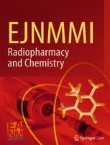Radiopharmaceuticals are a unique and highly regulated class of medicinal products. Their preparation is governed by both radiation protection and pharmaceutical regulations. The latter, originally designed for standard non-radioactive drugs, has often failed to fully acknowledge the unique nature of radiopharmaceuticals. This lack of understanding by regulatory authorities worldwide is further complicated by significant differences between various countries and regions. As a result, scientific societies have been actively involved in establishing appropriate standards and procedures. These efforts aim to guide the radiopharmaceutical community through the often-intricate set of rules and requirements, and to suggest modifications to legislation and associated guidelines.
This new collection of EJNMMI Radiopharmacy and Chemistry has two primary goals: (1) to encourage the publication of new articles on any topic related to guidelines, legislation, regulations, or recommendations that could impact the preparation of radiopharmaceuticals, including translational aspects such as clinical, preclinical or toxicological studies; and (2) to serve as a central repository for all articles and guidelines published by EANM, IAEA or other contributors in this field, making them readily accessible to the radiopharmaceutical community.
Please click here to see all articles of the collection.
Sergio Todde
Department of Medicine and Surgery – University of Milano-Bicocca / Tecnomed Foundation, Monza (Italy)
Marianne Patt
Section Pharmaceutical Radiochemistry, Department for Nuclear Medicine, University Hospital Augsburg, Germany
Iván Peñuelas
Radiopharmacy Unit, Department of Nuclear Medicine, University Hospital of Navarra, Pamplona, Spain
